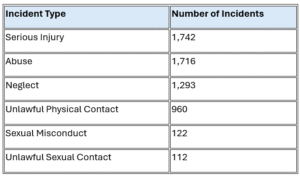De-platforming and decentralising to save the disability workforce
August 31, 2022

If you have scrolled through your LinkedIn feed lately, you would have likely seen a post about “enabling disability support workers to have a career in the NDIS”. In fact, there have been calls for such action since the first workforce strategy. This simple action is considered one of the cornerstones of solving the shortage of disability support workers. But, unfortunately, like all complex problems, simply calling for “careers” will not bring them into existence.
As with all attendant care matters in the NDIS, career progression is heavily constrained by the Disability Support Worker Cost Model (DSWCM). For example, the cost model assumes a 15 FTE span of control, which means a supervisor could oversee up to 30 part-time or casual employees. In the case of a provider with a 25% turnover rate, this results in an underwhelming 1.7% promotional opportunity rate for support workers.
Instead of striving for a promotion that may never come, many in the scheme point to adjacent opportunities in high-intensity support, support coordination, and recovery coaching.
This article reviews what these adjacent opportunities really mean for support workers. Additionally, we explore the bold idea that de-platforming and decentralisation could save our dwindling workforce.
Upskilling: High-intensity Support
A significant point of consideration in the “disability career pathway” is the transition from standard to high-intensity support, which in theory carries an 11.5% pay increase and an opportunity to develop specialised skills.
When looking at Supported Independent Living (SIL), standard supports represent 70% of the total volume of supports (by the hour). Therefore, if a provider’s average turnover rate is 25%, a typical support worker has an 11.3% chance of progressing to high-intensity.
However, charging the high-intensity rate is now possible without passing on the additional SCHADS level to a support worker. So, unfortunately, an 11.3% chance to work with high-intensity customers for an 11.5% pay rise will not solve our industry-wide staff development issue.
Sidestepping: Support Coordination and Recovery Coaching
Considering the total volume of support coordination and recovery coaching, the odds of acquiring a role are not dissimilar to promotion at around 1%. Hence, the reality is that if we want to satisfy staff needs for development, we cannot depend on the prescribed structures of the NDIS.
Training does not equal development
Unfortunately, many leaders in the NDIS insist they can solve their staff’s desire for career progression by offering arbitrary training content. This perspective fundamentally fails to recognise staff as rational agents who have a deep understanding of their opportunities in the workplace.
Empathia Group’s support worker engagement data has clearly shown that development means the chance to achieve a promotion in the near future. So, when a support worker says they’re looking for development opportunities, they don’t mean “being offered a 2-hour training course on restricted practices”.
The problem with platforms
Platforms exacerbate most of these problems by minimising promotional opportunities for support workers. In addition to customer control over rostering and feedback, lean and efficient allocation mechanisms within platforms result in a significantly higher average span of control for supervisor positions.
While this approach is clearly more efficient and may offer substantial value to customers, support workers are trapped. As we’ve seen in recent reporting, we should not consider disability support work as just a “side hustle”. Instead, it is a profession that adds tangible value to the lives of people with disability. Furthermore, platform features do not drive the quality of support, as it is directly related to the support worker’s unique combination of experience, skills, and demeanour.
The solution: decentralisation
The solution may seem like an unlikely statement from a group of management consultants, but the answer is radical decentralisation.
Why? Because putting supervisors on the frontline creates substantial promotional opportunities across an organisation and the wider industry.
Suppose a supervisor retains a significant billable component by working directly with clients 70% of the time. In that case, spans of control are reduced from 15 to 4.5 FTE (approximating the average SIL setting). As a result, supervisors can provide informal feedback during service provision, facilitating practice leadership.
Many organisations achieve a span of control saving through this method. Additionally, overhead expenses can be transferred to frontline staff if a supervisor is effectively supported to recruit, handle IR/ER matters, and manage the intake process for their placements.
While this decentralisation may leak efficiency, it enables you to further reduce spans of control by subsidising non-billable components and directly contributes to the development of frontline staff. It is also worth noting that customers want to deal with fewer people directly responsible for their care provision.
Changes in this order will affect margins. However, decentralising will enable you to signal a 20% annualised promotional opportunity to your support workers. These changes and micro-training directly associated with clear promotional opportunities are a sure bet to minimise avoidable turnover.
The key takeaway
Like all effective strategies, decentralisation requires genuine trade-offs that will fundamentally alter your organisation’s culture. Despite this, there are clear advantages to having engaged, low turnover staff, especially when considering customer quality of life outcomes.
At Empathia Group, we have developed an evidence-based and data-driven Support Worker Engagement Tool that evaluates the unique support worker environment specifically, enabling providers to identify the true drivers of turnover and engagement for this critical role.
If you’re intrigued by the notion of decentralisation and want to pick the brain of an NDIS expert, book a free 30 minute call.
Share this article:
Continue reading Empathia Insights
Kafkaesque: The Moral Hazard at the Heart of SIL
Kafkaesque: The Moral Hazard at the Heart of SIL Dean Bowman November 18, 2025 Supported Independent Living The Federal Court's...


